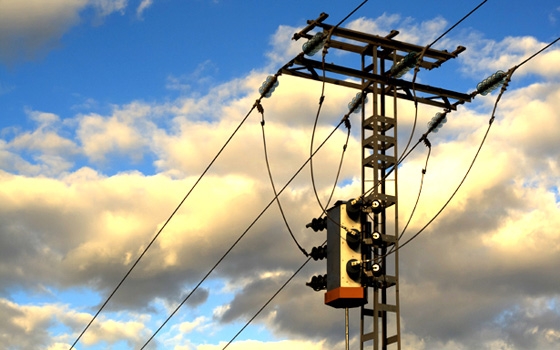Qatar hopes to produce 200 megawatts (MW) of electricity from renewable resources by 2020.
Qatar General Water and Electricity Corporation (Kahramaa), in its effort to conserve electricity and environment is going to launch a pilot project in Duhail to introduce "smart grid" system in the country.
"We are going to start a pilot project soon to introduce a smart power grid system in Qatar. The project, to be built in Duhail, will be implemented in cooperation with Iberdrola, a Spanish private multinational electric utility company based in Bilbao, Basque Country," Saleh Hamad Al Marri told The Peninsula on the sidelines of the 4th General Conference of Arab Union of Electricity and Exhibition that concluded here yesterday. Al Marri, who heads Kahramaa's Renewable Energy Technology and Technical Affairs Department, added: "We also have the cooperation of Qatar Environment and Energy Research Institute (QEERI) and Qatar Science and Technology Park (QSTP) for the pilot project."
The project will be implemented in two phases. The first phase will have an installed capacity to produce three to five megawatts (MW) of electricity and about 500 cubic meters of water.
The smart power grid will use information about the behaviors of suppliers and consumers automatically to improve the efficiency, reliability, economics, and sustainability of the production and distribution of electricity by using information and communication technology (ICT).
Asked, if Kahramaa had plans to upgrade the existing grids or install new smart power grids in the near future, he said: "After the pilot project we will select (some grids) which are useful for Kahramaa for the national grid."
Commenting about the advantages of smart power grids, he said that these grids will reduce operational costs. "Such grids will not only be cost-effective, they will also enable us to have effective control and remote monitoring."
Qatar, with one of the highest per capita water and electricity consumption coupled with high carbon footprint in the world, is working aggressively to conserve the scarce resources.
"On the demand side management, we have created in Kahramaa a new department for energy conservation and energy efficiency. We are also auditing a lot of other measures to put in place aiming to conserve water and electricity resources in Qatar," said Yousef Janahi, Manager, Corporate Planning and Business Development at Kahramaa. He added: "Under 'Tarsheed' we have a target to conserve about 35 percent of electricity and water in the next five years by reducing demand. And on the supply side, we are introducing efficient and environment friendly technology to produce about 200MW of electricity by using renewable resources."
A smart grid is an integration of different types of power stations such as thermal, solar, wind, gas and other types. The power stations communicate with each other through a smart grid without human interference to decide automatically which power station should be started depending on the demand (load) and the supplying capacity of a particular power station.
For instance during day time when the sun light is more intense, the wind or other power stations may remain silent.
While explaining advantages of smart grids, Mohan Kumar, a senior electrical engineer, said: "When people are getting ready to go to office, the load is more in residential areas as consumers switch on geysers, electric irons and other household appliances, so the peak load is more, while the industry can be idle at that time. Similarly once the people reach to their work places, load from the residential areas will be less and surplus power can be diverted to the industries."
The Peninsula
10 January






















































